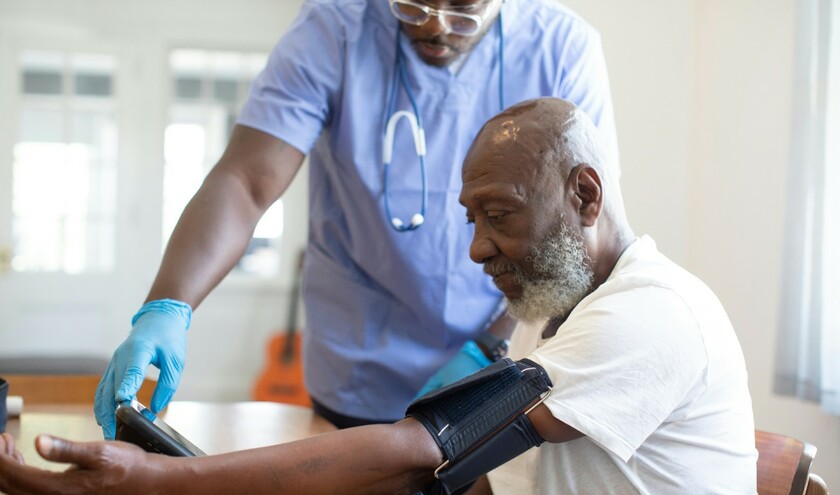Currently, there are more than 3,500 PAs and around 100 AAs working alongside over 180,000 full-time equivalent doctors and GPs in the NHS in England.
The review, to be led by Professor Gillian Leng, will look into the safety of these roles, how they support wider health teams, and their place in providing patients with good quality and efficient care. It will also look at how effectively these roles are deployed in the NHS, while offering recommendations on how new roles should work in the future.
The review will seek evidence from a range of voices, including patients, employers within the NHS, professional bodies, and academics.
Health and Social Care Secretary, Wes Streeting, said: ‘Many physician associates are providing great care and freeing up doctors to do the things only doctors can do.
‘But there are legitimate concerns over transparency for patients, scope of practice, and the substituting of doctors. These concerns have been ignored for too long, leading to a toxic debate where physicians feel ignored and PAs feel demoralised.'
Professor Gillian Leng added: ‘To promote patient safety and strengthen the NHS workforce, it's crucial that we have a comprehensive review of the role of PAs and AAs. This will cover recruitment and training, scope of practice, supervision and professional regulation.
‘As I conduct this review, I am looking forward to speaking to a broad range of stakeholders and to gathering evidence from the UK and abroad so that we can reach a shared understanding of these roles and their place in wider healthcare teams.'
The review and next steps will be published in the Spring.
NHS England has issued guidance on the roles that PAs and AAs play. Regulation of PAs and AAs by the General Medical Council will begin in December 2024 to help to ensure that all PAs and AAs meet the high standards expected of every healthcare professional.
Reaction
Amanda Pritchard, chief executive of NHS England, said: ‘Physician associates and anaesthesia associates are important members of NHS staff – they come to work every day to help care for patients and so they deserve to be treated with the same respect as anyone else coming to work in the NHS.
‘While we have always been clear that they are not replacements for doctors, there are clear and ongoing concerns which we are listening to carefully and taking action to address – this independent review marks our pledge, together with the government, to getting this right.'
Professor Sir Stephen Powis, NHS national medical director, commented: ‘Like all healthcare professionals in the NHS, physician and anaesthesia associates come to work every day wanting to do their best for patients and I have seen how well they can work as part of clinical teams, but it is essential that they are properly supported and supervised in their roles, and where there continue to be concerns that this is not always happening, we must investigate further.
‘It is absolutely right that we have the confidence of the public and the medical community as we develop the future NHS workforce, and we will collaborate fully with Professor Leng and the review team to carry out this important work over the coming months.'
Dr Navina Evans, NHS England's chief workforce, training, and education officer, said: ‘We know that having a diverse set of skills and roles within the NHS workforce helps to improve care for patients and the efficiency of our teams, including staff in associate roles who work under supervision to deliver specific tasks they are trained to do alongside a wider team.
‘But we must also listen to the concerns people have about these roles and I fully support this review to ensure we get the right evidence-based answers for patients, doctors, associates and the NHS as we develop our future workforce.'
Danny Mortimer, chief executive of NHS Employers, said: ‘Leaders in the NHS, independent care and medical representative organisations have struggled to find constructive and coherent ways to respond to the public's concerns about the clinical work of physician and anaesthesia associates who make up a small proportion of the sector's overall workforce. At times, the responses have lacked courtesy and compassion, particularly for those in these professions.
‘The intervention by the secretary of state for health and social care is therefore a welcome one. Professor Gillian Leng has widely respected credentials as an evidence-based clinician and leader, and her review provides an opportunity to take a careful examination of these roles, particularly in light of their forthcoming regulation by the General Medical Council.'
Unison deputy head of health, Alan Lofthouse, said: 'Physician associates are dedicated professionals performing a vital role in an under-pressure NHS. They're using their skills and competence to give care to patients in a system that has a chronic shortage of doctors and other staff across the board.
'Unfortunately, these health workers are facing high levels of abuse from some colleagues, interest groups and patients for the wider failings of the NHS. But physician associates shouldn't be made scapegoats for any uncertainty created by the previous government, regulators and professional bodies on the scope of their role.
'This timely review will allow valid concerns to be considered and hopefully a sensible solution found.'
BMA council chair Prof Phil Banfield said: ‘This Government has acknowledged the concerns of doctors and accepted there is a safety issue with the employment of physician associates. Now the NHS must tell us how they are going to keep patients safe while this review is carried out.
‘You do not fly a plane under safety review, you ground it. So we need to know what immediate safety measures NHSE will put in place, how quickly they will pause their PA expansion plans, and in the meantime if they will adopt the BMA's own guidelines to start protecting patients now.'
He added: ‘The NHS has failed to make the employment of associates safe for patients. By allowing a free-for-all on what PAs can and can't do, hospitals have become a postcode lottery in which patients don't know if they are being seen by a professional with the right skills. Only a clear, nationally agreed scope of practice, telling employers what PAs can and can't do, will clear up this mess. This review must lead to one.
‘It is also vital that the review finally gets to the bottom of the use by some hospitals of PAs and AAs in roles that should be filled by fully trained doctors. The Government must not dodge this opportunity to provide a clear picture of what is happening right now to ensure unsafe substitution is immediately reversed.'



